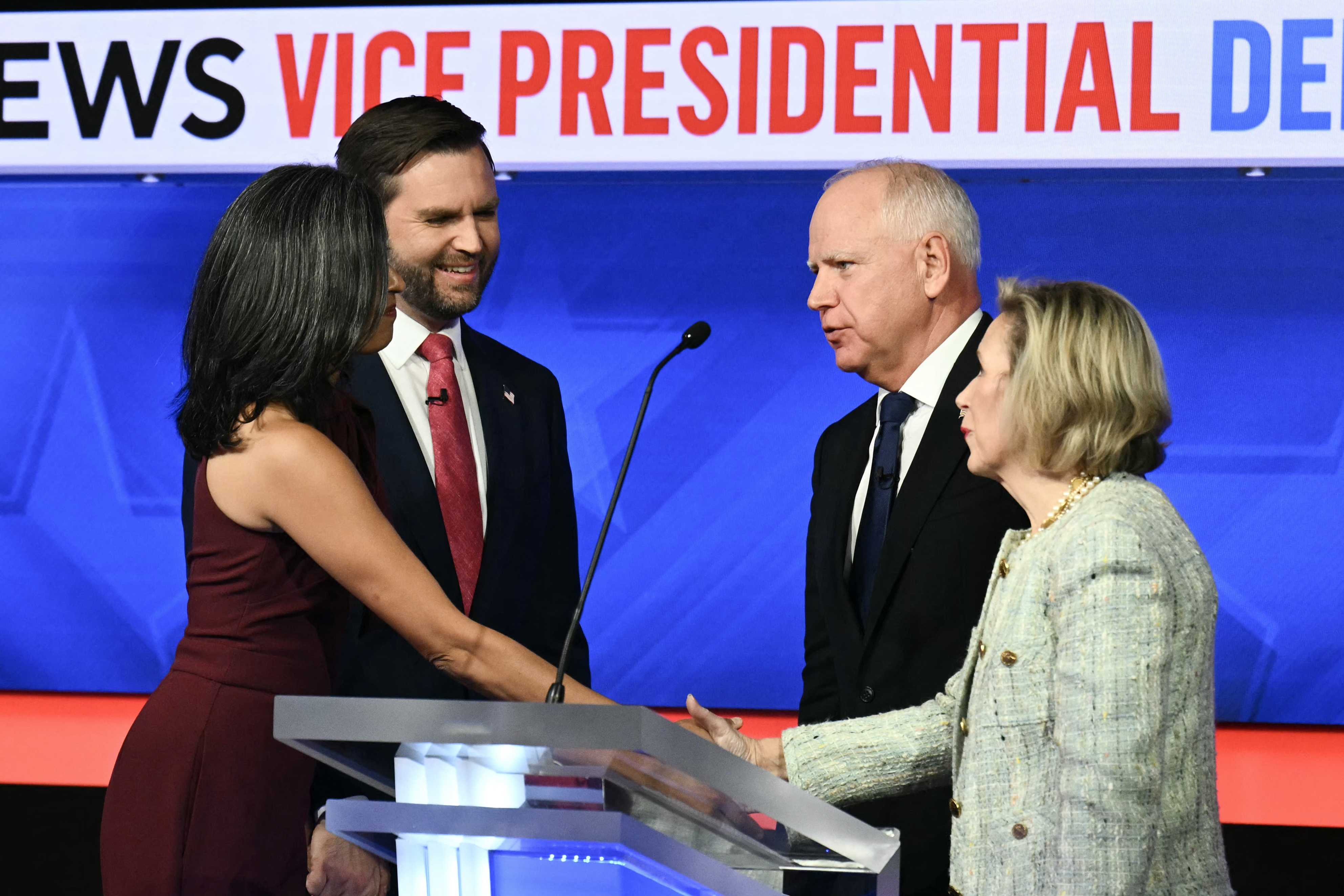Claims of outrageous behavior, like “they’re eating the cats, they’re eating the dogs,” felt miles away during Tuesday night’s vice-presidential debate. Ohio Senator JD Vance and Minnesota Governor Tim Walz exchanged fiery attacks for a more measured, policy-focused discussion that left many voters wanting to hear similar substance from the presidential candidates.
Unlike the recent debates marked by harsh personal attacks, Vance and Walz delved into crucial issues, including manufacturing policy and gun violence, with surprising moments of agreement. However, their differing visions for the country made it clear that the debate’s essence was in contrasting viewpoints.

Moving Beyond Fireworks
The evening opened with Iran’s missile attack on Israel, promptly shifting focus to the candidates’ foreign policy perspectives. Walz was asked about supporting a preemptive strike on Iran but hesitated to give a clear answer while praising the leadership of Vice President Harris.
Vance countered with a strong defense of Trump’s brand of diplomacy, highlighting how a robust leadership style can ensure global stability. Rather than relying on viral statements, the candidates engaged in substantive discussions that even touched on each other’s policies more than their presidential counterparts previously had.
When the topic of climate change arose, Vance linked it to job creation in manufacturing, while Walz emphasized the Biden administration’s role in promoting renewable energy alongside traditional energy production—each presenting their hopes for America’s energy future with optimism.
Heated Moments Amidst Civil Discourse
Despite a generally cordial tone, the debate was not without its tensions. Immigration discussions led to a fiery exchange, prompting moderators to intervene and cut microphones briefly. Both candidates recognized the challenges of illegal immigration but blamed each other’s political party for the failures to resolve the issue.
Even contentious topics like abortion saw the candidates maintain a mostly policy-centered dialogue. Vance claimed clarity around his abortion stance while Walz let him share his views with minimal opposition.
One of the debate’s more vulnerable moments came when Walz revealed his son had witnessed a shooting, which led to a genuine exchange of condolences from Vance. They drew different conclusions about preventing school shootings: Vance advocated for enhanced security, while Walz leaned toward gun control measures.
The discussion on the January 6 Capitol riot concluded the night, with Walz pressing Vance on acknowledging Biden’s election victory—a question Vance avoided. His focus on Trump’s peaceful motives during the Capitol events may have hindered his otherwise solid performance.
The debate, though extended beyond the planned 90 minutes, left numerous critical topics untouched. Key issues like U.S. aid to Ukraine and ongoing legal matters surrounding Trump’s actions didn’t come up, nor did many inflammatory remarks from Vance regarding immigration.
Ultimately, amidst a few raw moments of tension, Vance and Walz showcased how debates can effectively balance substance and civility, leaving viewers eager for more from their presidential counterparts.
